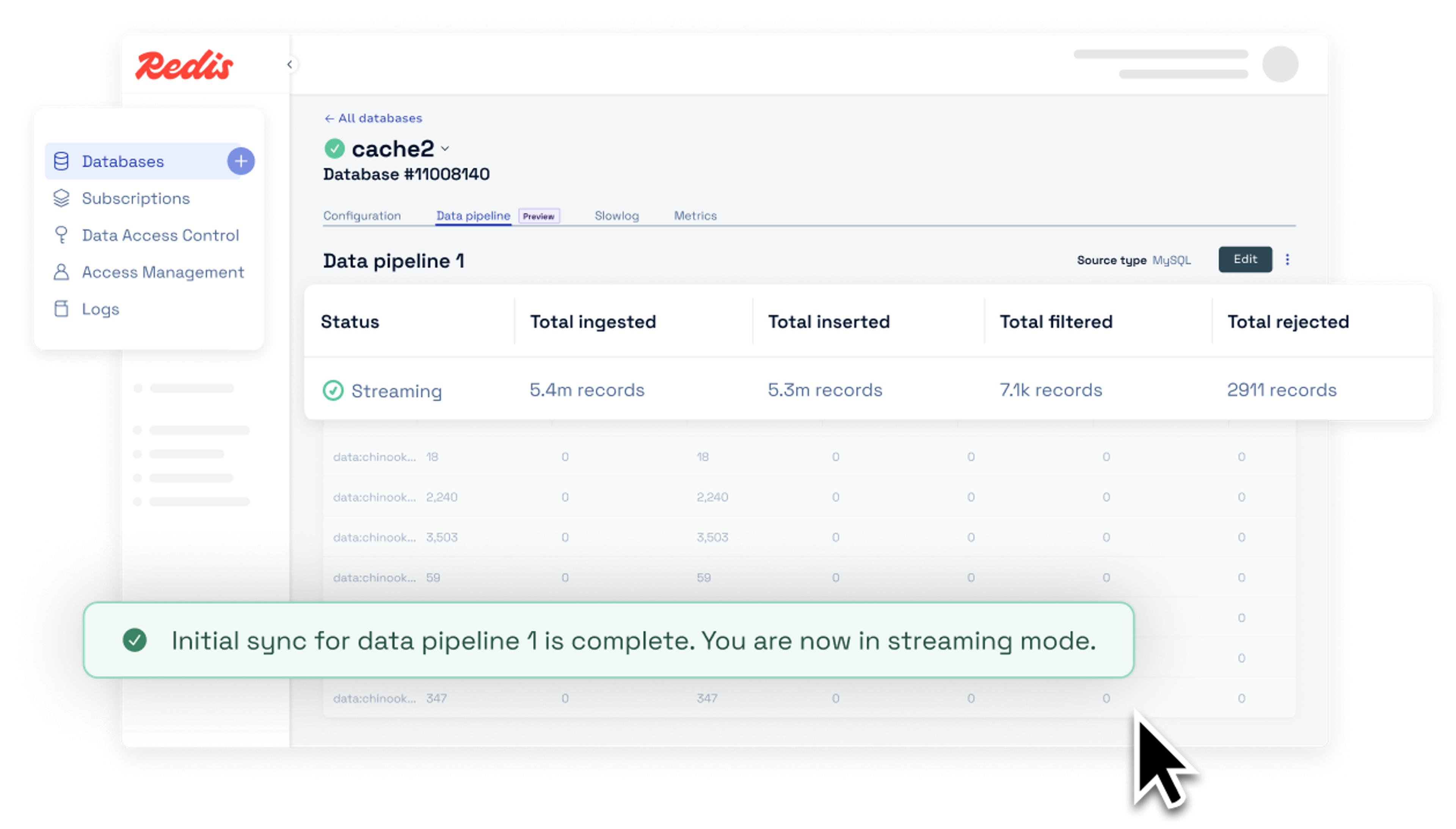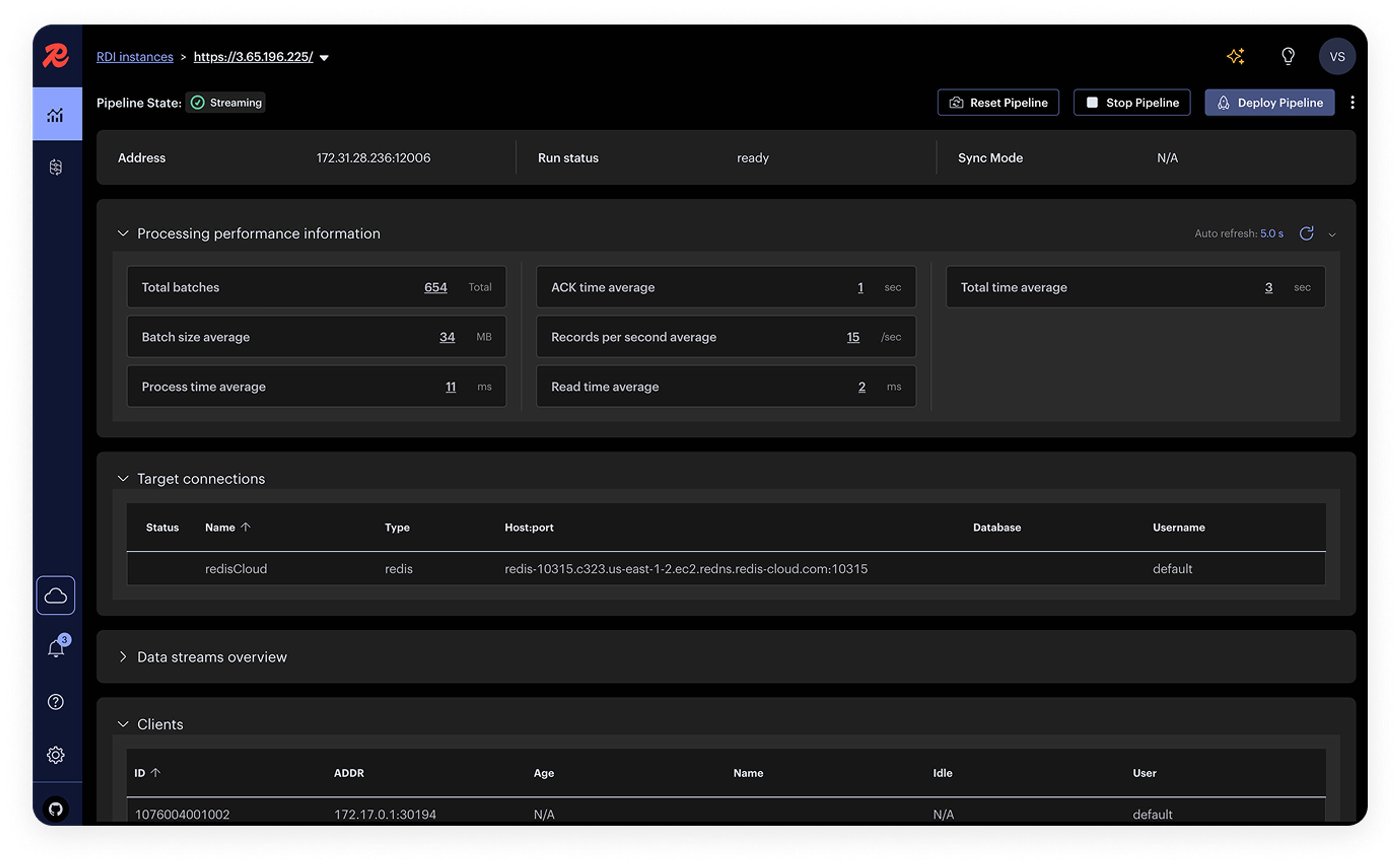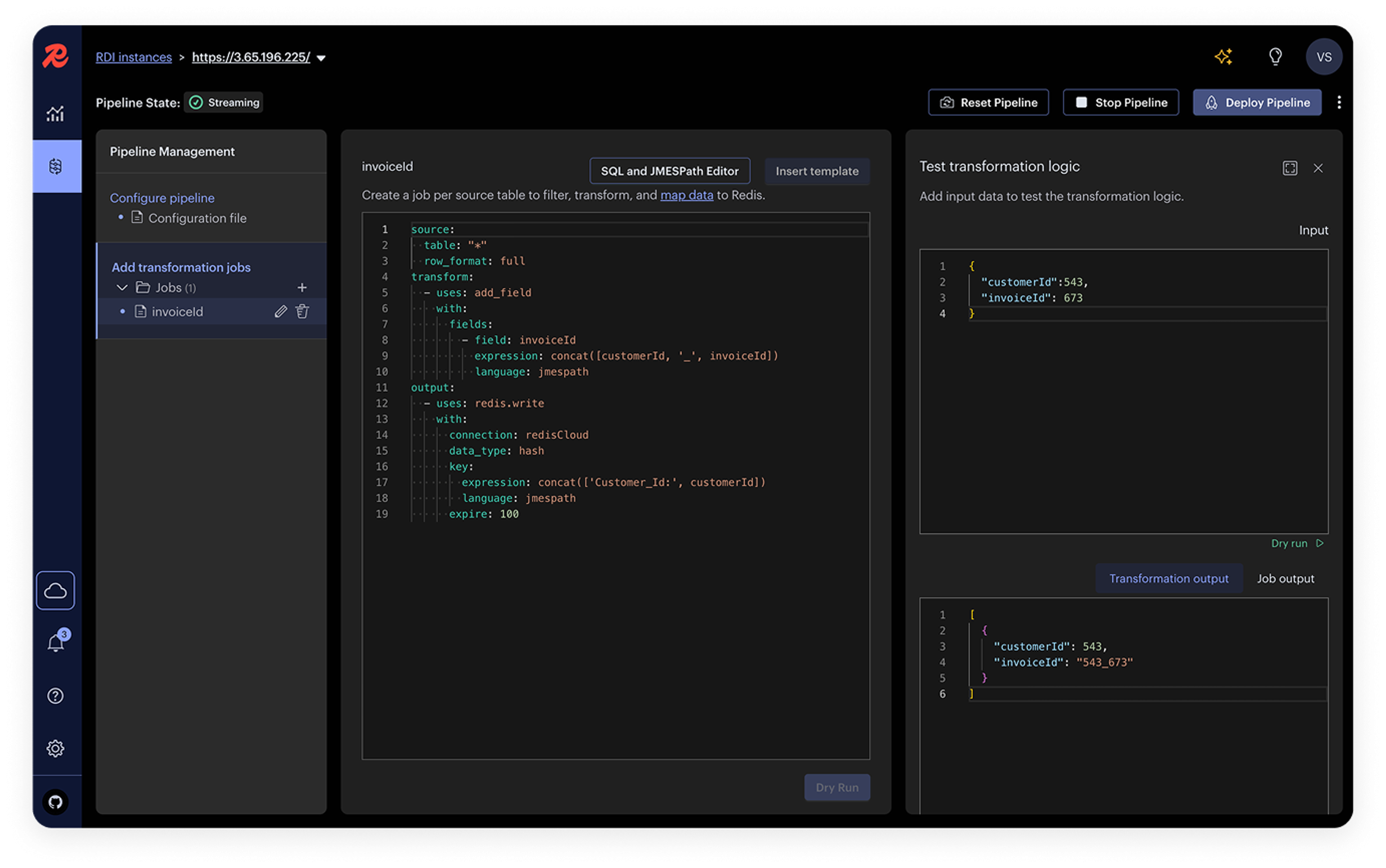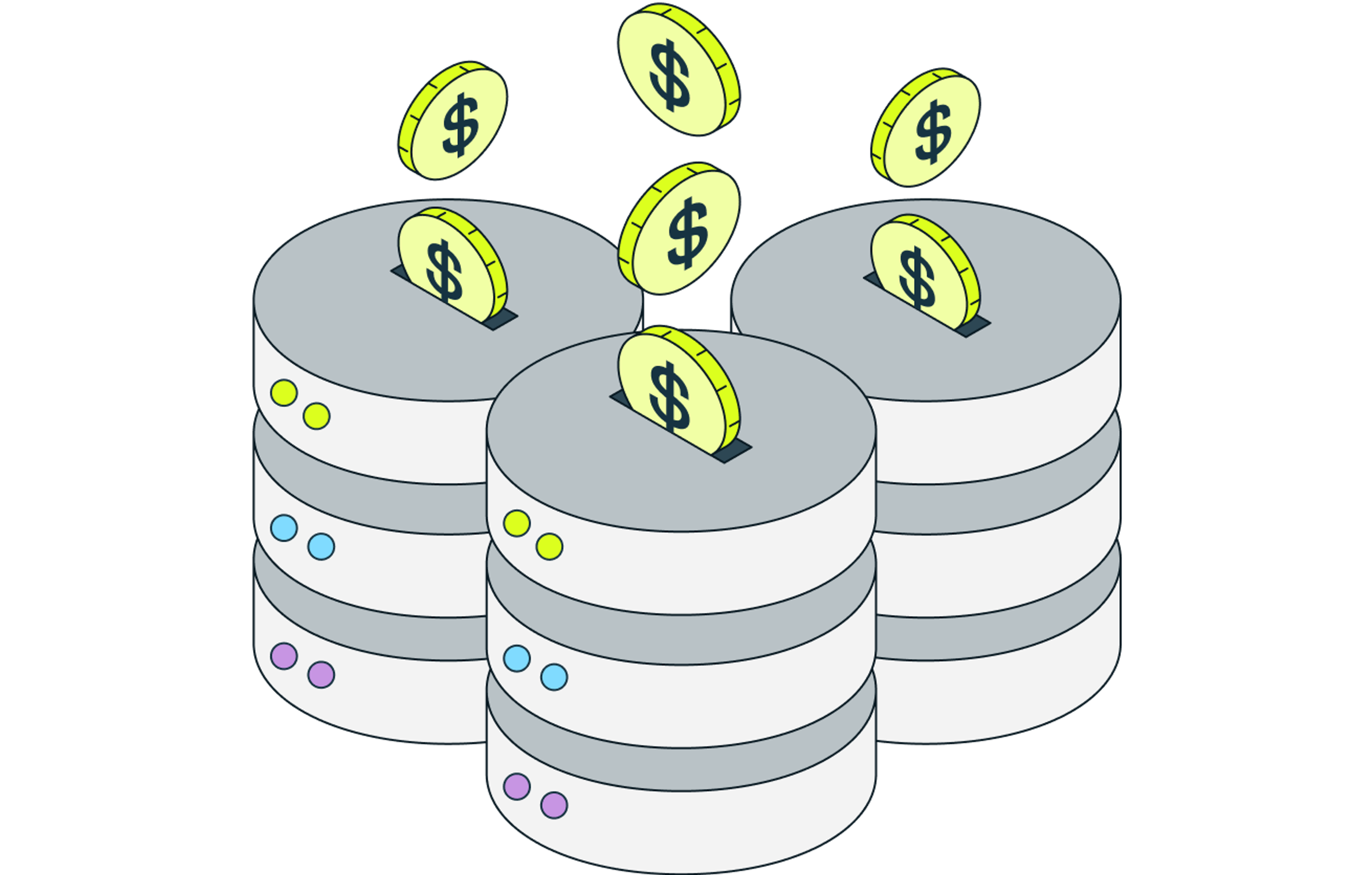“We don’t want any operational headache between the systems. It should all be reliable and work flawlessly; that’s what we’re counting on. So far, Redis is giving us the tools and peace of mind we were looking for so that we can spend more time focusing on our customers."
Redis Data Integration

Redis Data Integration (RDI) synchronizes data from your database into Redis in near-real time, so you can say goodbye to cache misses and stale data.


Caching that’s always in sync
Improve customer experiences by keeping data always in sync. Eliminate cache misses and stale data and overcome the limitations of traditional cache-aside.

Effortlessly sync data
Quickly launch real-time apps at any scale. Stop wasting resources with multiple manually-built data pipelines. Manage data and keep it in sync with configuration—not code—instead.

Greater scalability with lower cost
Instead of paying for expensive read-replicas, offload reads to Redis to make your apps more scalable and less expensive.

Fast the first time
Stop waiting for a first cache miss before loading data into memory with cache-aside. Prefetching with RDI gets ahead of the request, so your data is already hot and in-memory when you need it.
Join the public preview in Cloud
Submit this form to join the RDI public preview in Redis Cloud.


“Prioritizing our customers’ needs is paramount, and integrating RDI has been instrumental. By leveraging Redis, we have achieved rapid data retrieval, improved performance, elevated user experience and enhanced stability for over 10 million daily users.

Faster for nearly any database
Ingest from Oracle, PostgreSQL, MySQL, MariaDB, MongoDB, Percona XtraDB, Microsoft SQL Server, Google Cloud SQL, Amazon RDS, and more.

Ingest without code
Identify, transform, and instantly ingest data from your database into Redis to keep your database and Redis in sync—without writing code.

Simple data pipeline management
Create, validate, deploy, and visualize data pipelines seamlessly from within Redis Insight or the Redis Cloud console.

Integrate data reliably
Integrate confidently with RDI’s high-availability, self-healing, and at-lease-once delivery guarantee.

Work with your favorite tools
RDI supports popular ops tools, including RDI CLI and Grafana dashboard with metrics via Prometheus exporter.

Do more with Redis
Because RDI prefetches your full dataset in the format your app needs, you can query your data directly in Redis in real time.
Get started
Meet with an expert and start using Redis Cloud today.
Frequently asked questions
More questions? See our Docs pageRedis Data Integration (RDI) is a Redis tool that simplifies bringing data into Redis and eliminates the challenge of keeping Redis in sync with your primary database. It allows data to be synced into Redis in near-real time by identifying any changed data at the source database, transforming it in a declarative way, and ingesting it into read-optimized Redis data types.
RDI can be used by customers using Redis Software. Once you have a Redis Software deployment, RDI can be installed on a VM before a pipeline is configured and deployed using Redis Insight. RDI is also available for Redis Cloud (public preview) and can be set up through the Redis Cloud UI.
Three major challenges with cache-aside are cache misses, stale data, and cost. Cache misses slow down data retrieval, while stale data can lead to outdated or inaccurate information being shown to users. And the marginal cost for scaling reads on your cache is lower than on your primary database. RDI helps you overcome these issues by keeping Redis seamlessly in sync with your primary data source, eliminating the need for costly and time-consuming custom data pipelines.
RDI is an excellent choice when your application has a large number of users (>10,000 concurrent users), tables with many rows (tens to hundreds of millions), and a 80:20 read-write ratio.
These characteristics are commonly found in use cases in the financial services, e-commerce, and government verticals. Use cases include mobile banking, trade processing (caching reference data), real-time inventory (e-commerce), and tax payment portals. These use cases can have tens to hundreds of millions of rows of assets, such as bonds, accounts, products, and more.
Cache prefetching is a technique used in database management systems (DBMS) to improve query performance by anticipating and fetching data from the storage subsystem before it is explicitly requested by a query.
CDC stands for change data capture and is a design pattern used to determine and track data that has changed in a given dataset.

